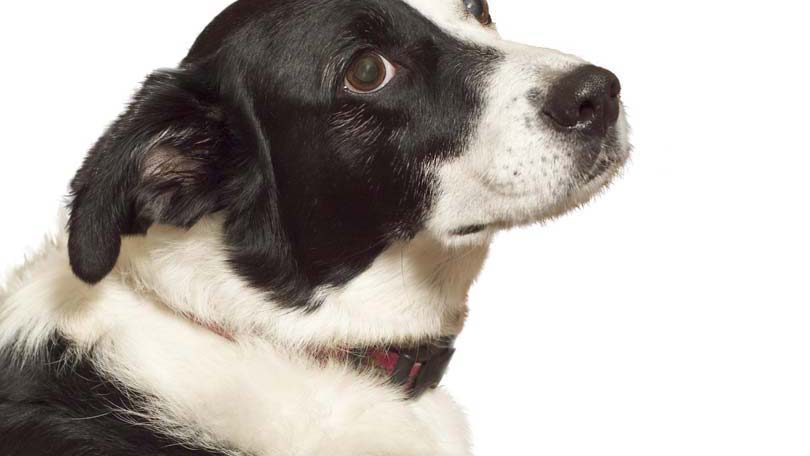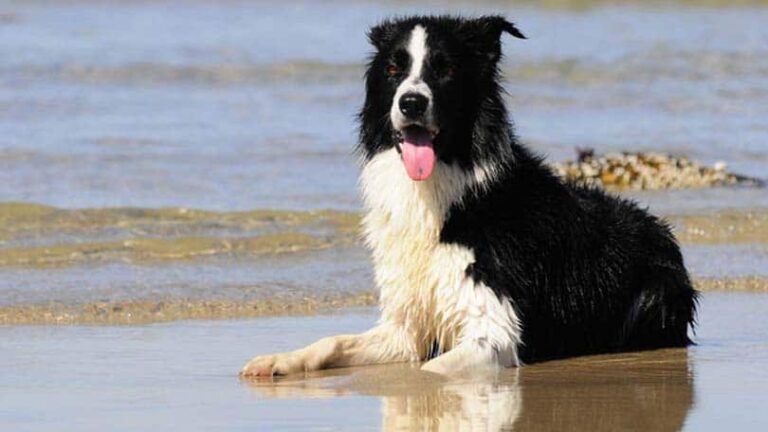Dog Diarrhea – Causes and Treatment
Diarrhea in dogs is a problem that will likely be experienced by all pet owners at one point or another, and as a result, it is important to understand some of the main causes of diarrhea in dogs, as well as ways to treat and prevent diarrhea in your pet.
Diarrhea is not a disease itself, but rather a symptom that is common to many different problems. Identifying the cause of an episode of diarrhea is not always simple, as diarrhea can be the result of something as simple as eating something out of the ordinary and having loose stools, to an almost continuous stream of watery stools caused by a potentially deadly virus. Diarrhea can rapidly lead to dehydration in dogs due to water loss in the feces, which can cause blood sugar depletion, circulatory collapse, and even death. As a result, any time your pet experiences diarrhea, medical attention is always warranted in order to diagnose and treat the underlying cause before it can become life-threatening.
The symptoms of diarrhea are hard to miss- stools can range from being slightly softer than usual to feces comprised of mostly water. These abnormal episodes are often accompanied by straining to defecate, increased frequency of defecation, and loss of control. When diarrhea is accompanied by vomiting, lethargy, abdominal pain, or the presence of blood or mucous in the stool, the condition should be considered a medical emergency, and you should consult your veterinarian immediately.
The most common cause of diarrhea in dogs’ stems from intestinal upsets. Changing a brand of food suddenly, giving an unfamiliar treat, and feeding people food can all cause intestinal upsets and diarrhea in dogs. Fortunately, many times these upsets can be treated at home by withholding food for 24 hours (allowing the digestive system to recover from the irritating factor), then reintroducing food in the form of small meals of a bland diet, such as boiled chicken and rice). However, if your dog experiences any other symptoms (such as vomiting, lethargy, inappetance) a vet visit is warranted to ensure that there isn’t a more serious cause and to treat your dog accordingly.
When changing your pets diet, you can avoid most intestinal upsets by spreading a diet change over several days. By slowly phasing in the new food and phasing out the old food slowly over a period of several days to a week, your are helping your dogs digestive system to adjust to a new set of ingredients, which will help to minimize stomach upsets and episodes of diarrhea.
In addition to diet changes, feeding human food to dogs is also a major cause of diarrhea in dogs. Many types of foods that humans eat are toxic to dogs (i.e. raisins, grapes, chocolate), and many more foods are high in fat. Fatty foods are often too rich for the dogs digestive system, and pancreatitis (a serious inflammation of the pancreas) can develop, causing symptoms of abdominal pain, lethargy, reluctance to eat or drink, diarrhea and vomiting. Left untreated, pancreatitis can be life threatening, and while it can occur in any dog, limiting your dogs intake of fatty foods can help to prevent.
Another common cause of diarrhea in dogs are intestinal parasites. There are many different types of parasites that can affect dogs, and almost all of them share diarrhea as a symptom. These include:
Roundworms
An intestinal parasite that are especially common in puppies, roundworms are ingested by dogs through the soil, and passed from the mother dog to puppies through the milk. Roundworms can grow up to seven inches long and look like spaghetti when they are expelled in the feces. Aside from the presence of worms in the stool, symptoms of roundworms include a pot-bellied appearance, poor growth in puppies, diarrhea and vomiting. Roundworms can be deadly in puppies, as the worms can virtually take over the intestinal tract, as well as cause pneumonia due to their presence in the lungs and windpipe.
Hookworms
Common in warmer, humid climates, hookworms can affect dogs of all ages. Adult hookworms ‘hook’ into the lining of the intestines and feed on the blood supply. In puppies, hookworms can be especially dangerous, as the parasites migrate into the fetus and cause an infestation before birth, leading to severe anemia, weakness and bloody diarrhea if allowed to continue unchecked. Giardia and Coccidia: While not technically worms, Giardia and Coccidia are both intestinal parasites caused by single-celled organisms. Easily passed through contaminated soil or water sources, Giardia and Coccidia are both highly contagious and prevalent in many dog parks, doggy day care facilities and kennels. Diarrhea is the most common symptom of infection, and dogs with coccidia especially may have very watery stools and bloody diarrhea, vomiting, depression and fever, and even death as a result of severe dehydration.
While diarrhea in an adult dog can have very serious causes, any episode of diarrhea in puppies can be a early sign of potentially deadly viral infections.
Canine Parvovirus
An extremely common virus that attacks the gastrointestinal tract of unvaccinated and undervaccinated dogs, leaving the dog unable to absorb nutrients or liquids. Profuse, liquid diarrhea is a major signs of parvo, as the cells of the intestinal lining slough and are expelled through the feces, which are often extremely foul smelling an may contain blood. Dogs with parvo also experience a high fever, lethargy and loss of appetite. The volume of diarrhea can lead quickly to severe dehydration and death, and dogs infected with parvo must be hospitalized and treated aggressively in order to help their chances of survival. Parvo is preventable in dogs through a strong vaccination program.
Canine Distmeper Virus
A highly contagious disease that affects the brain, intestinal tract and respiratory tract of infected dogs. Dogs with distemper often have a high fever, and may also cough, sneeze, have a purulent discharge from the nose or eyes, develop vomiting and dark, tar colored diarrhea, and eventually progress to seizures and twitching as the virus attacks the central nervous system. There is no cure for distemper, and treatment is aimed at controlling the symptoms. Vaccination is the best way to prevent yoru dog from developing distemper.
What treatment a dog with diarrhea might require is directly related to the underlying cause. A dog that has had loose stools for a short time (less than 24 hours) that is otherwise eating, drinking and acting normally may just have a transient intestinal upset, and taking a conservative approach (ie withholding food, feeding a bland diet) may be enough to solve the problem. However, if your dog has had diarrhea for longer than one day, if he has any other symptoms, or if your dog is still a puppy, prompt veterinary treatment is necessary to diagnose and treat your dog before the condition can become serious.
At the vets office, the doctor will perform a full physical exam on your dog, as well as talk to you about your dogs recent history, trying to pinpoint a possible cause of the diarrhea. In addition, your vet may recommend some or all of the following treatments:
Fecal testing
A fecal sample may be tested for the presence of parasites. An antigen test can also help to detect the presence of Giardia.
Blood testing- Blood work is one of the best ways to access your dogs overall health. Serum chemistries can help your vet access the condition of your dogs major organs such as kidney, liver and pancreas. A complete blood count can check for evidence of infection.
Parvo test
A quick, in-hospital test is available, and may be recommended if your young dog is having diarrhea. A small sample of feces is tested, and within minutes a diagnosis of parvo can be ruled in or out, thus directing treatment for the appropriate disease process.
Radiographs
If no other cause of diarrhea has been identified, your vet may recommend X-rays of your dogs abdomen to get a “snapshot” or your dogs internal organs, which can help to identify intestinal obstructions, or foreign bodies your dog might have eaten.
No matter the cause, treatment of diarrhea is aimed at identifying the cause of the intestinal upset, treating that cause, and correcting any dehydration or fluid imbalance that might have occurred as a result of the diarrhea. Dewormers are available to treat parasites, and medications may also be prescribed to return your dogs digestive tract to normalcy more quickly. In severe cases, subcutaneous (under the skin) or IV (intravenous, via a catheter inserted in the veins) fluids may be required to quickly rehydrate your pet, as well as other medications, and in some cases even hospitalization may be required to help your dog recover from a serious bout of diarrhea.
No matter the cause, diarrhea is always a symptom of a greater medical problem in dogs. Left untreated diarrhea can be life threatening, it is important to pay close attention to your dog, and get him or her to the vet quickly if signs of a more serious condition begin to develop.

Having discovered a fondness for insects while pursuing her degree in Biology, Randi Jones was quite bugged to know that people usually dismissed these little creatures as “creepy-crawlies”.







